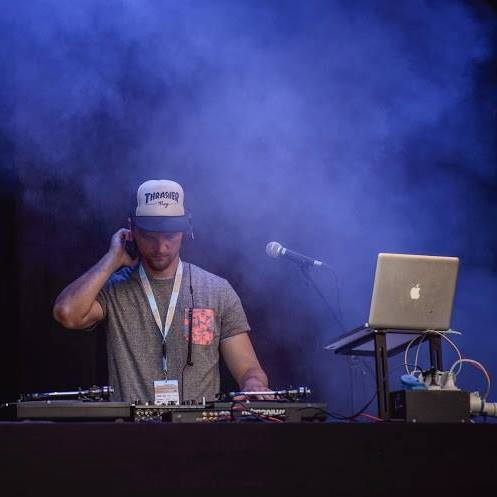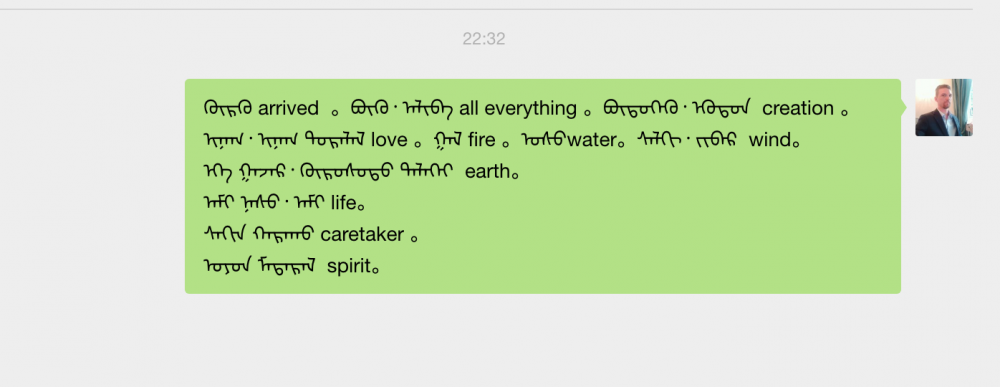-
Posts
2185 -
Joined
-
Last visited
-
Days Won
46
Everything posted by linguaholic
-

Word order query - "Im Dezember man Sterne sehen kann."
linguaholic replied to Barry's topic in German Grammar
Well in my opinion, the word "ja" here just adds to the intensity of the actual expression. The word "ja" here does not have a semantic value. That is how I see it here. If you would just say "Man kan nie wissen", the meaning would exactly the same. At least 99% the same :=) -

which is the easiest language to learn and write?
linguaholic replied to chrismartin12's topic in Language Learning
In order to give you some advice on this, please tell us more about what your goals/plans are. It is impossible to give you any advice, if we do not know what you would like to achieve/do with that new language. Best, L -

Word order query - "Im Dezember man Sterne sehen kann."
linguaholic replied to Barry's topic in German Grammar
Hey Barry. Welcome to Linguaholic.com! You are right, it is wrong. It should say "Im Dezember kann man Sterne sehen" or something like "Im Dezember ist es möglich, Sterne am Himmel zu sehen." But then again, it is a song. Often in songs, word order gets a little bit mixed up. But it definitely does not sound nice like that. And after all, it is wrong. That is true. (I can't listen to the song right now. I will listen to it later on. Maybe the context gives this particular sentence a little bit more sense. I highly doubt it, though. As I can't imagine a context where this actual sentence structure would truly make sense) -

How can language learners improve their pronunciation in English?
linguaholic replied to Nargis's topic in Language Learning
I gotta disagree, here Google most definitely feels pressure from DeepL. In fact, Google Translate has been in this game for ages, yet DeepL outperforms GT by FAR. Moreover, DeepL apparently has been invented by people of linguee.com (another amazing resource). And linguee.com has been a major platform for translators for a long time already. But yes, more language options is definitely an important factor and DeepL will need to work on that. Let's see where it goes. The word about DeepL spreads fast, though. Translate a text twice, once with DeepL and once with Google Translate. And tell me which translation is more accurate. I am sure GT will be able to close the gap eventually, but at the moment, DeepL is just really outperforming GT. -
-

How can language learners improve their pronunciation in English?
linguaholic replied to Nargis's topic in Language Learning
However, the interesting thing is that the approach that is used by DeepL is less depending on mere data than it is the case with Google Translate. Google Translate has always been based on a statistical approach. The concept for GT is pretty simple: The more data you have, the better the translations will be. But as DeepL is not based on a statistical approach, there are many other factors that come into play. And this also makes it less dependent on actual corpus data (translations available in a specific language pair). I am wondering if GT will still go the "Statistical Approach Route" in the future? Most certainly they are already gearing it towards the approach that is used in Deep L. Maybe they already do that, I don't know. Haven't used GT for a while. Why should I? Have been more than satisfied with DeepL these days :=) -
My friend has indeed already translated the terms into Mongolian. I will upload the translations as soon as I am home. Hope they will be useful for you. Best, L
-

How can language learners improve their pronunciation in English?
linguaholic replied to Nargis's topic in Language Learning
Thanks, Alina. hehe. I already came across this video earlier on. It is really funny. Yes, I am also waiting for DeepL to add more languages. That is gonna be awesome. Really curious how well DeepL will be able to master translations from let's say Chinese into English. That's a big deal. Much more difficult than other combinations like German-English and so on. -
Agreed. There just is no such thing as "the easiest language to learn". It really all depends on your point of reference. Same with constructed languages. There again, those constructed languages are based on linguistic concepts that already exist. So they are basically based on other existing languages. And therefore, the "problem" with the point of reference stays the same.
-
hey there. I have a Mongolian friend. I will ask her if she can be of any help. However, she does not speak English. So first, I would need to tell her in Chinese about it. But I will let you know how it goes:=) Best, L
-

I want to learn more about ancient languages
linguaholic replied to MattCohan's topic in Language Learning
Hey Matt. I might be of some help with good resources to tackle Sumerian but I never studied it myself. In fact, when I studied Linguistics at University, Sumerian has always been a topic of interest. So that is where I mainly know it from. -

How can language learners improve their pronunciation in English?
linguaholic replied to Nargis's topic in Language Learning
Hey Alina I am curious. What is your opinion on those speech recognition systems? I am not very fond of them. I think there is still a long way to got some more advanced speech recognition systems. On the other hand, when it comes to translations, huge progress has been made recently. The translation software DeepL has been a major breakthrough in translation for sure. I use it at work every day and when translating let's say English to German or German to English it is incredibly good and on point. I couldn't believe my eyes when I first started to use this software. So amazing. In case you haven't heard about it, you can check it out here DeepL Best, L -

I want to learn more about ancient languages
linguaholic replied to MattCohan's topic in Language Learning
awesome Matt! I am curious. What is your fascination with Sumerian specifically? Would love to hear more about that. Best, L -

Do you think it's mandatory to learn English?
linguaholic replied to Ailcua's topic in Language Learning
Completely agree with you, Alina. -

Do you think it's mandatory to learn English?
linguaholic replied to Ailcua's topic in Language Learning
Hey Alina I do agree with most of what you said. However, Chinese is pretty useful too. and it is a fascinating language, after all. But English does make more sense from a "lingua franca" point of view. At least for now. There is no doubt about that. Oh and by the way. Thanks so much for joining linguaholic.com. It is great to have you here! Best, L -
Dear Carlos, welcome to Linguaholic Just open some threads and ask some interesting questions, for instance. Moreover, you can visit our Language Exchange Corner Just leave a message there and tell everybody what you are looking for exactly. For instance, you could say that you are looking for a native English speaker to chat with or something like that. I am sure you get the idea. Best wishes from Beijing, L
-

Minor translation that machines won't do?
linguaholic replied to PCVH's topic in Japanese Language | Discussion
und ja was Übersetzungen anbelangt, da finde ich auch, dass maschinelle Übersetzung leider noch nicht so wahnsinning weit forgeschritten ist...jedenfalls nicht bei der Übersetzung von Chinesisch - Englisch oder Chinesisch/Deutsch, etc. ALLERDINGS muss man sagen, dass es nun mit Deep L ein unglaublich gutes Übersetzungstool gibt für einfachere Sprachkombos wie z. B. Englisch-Deutsch (und andere germanische oder romanische Sprachen). Falls sie deepL noch nicht kennen, sollten Sie das unbedingt mal ausprobieren. Ist fantastisch. -

Minor translation that machines won't do?
linguaholic replied to PCVH's topic in Japanese Language | Discussion
Nun ja, ich glaube, dass es hier so ist, dass halt zuerst einfach Fuji steht (also ohne Berg = 山) und dann so etwas wie Bergbesteigung (登山)....Ich spreche aber eigentlich nur Chinesisch..darum kann es sein, dass meine Interpretation nicht zu 100 Prozent stimmt. mehr oder weniger müsste das aber ungefähr hinhauen :=) Beste Grüße aus Peking Lingua -

Minor translation that machines won't do?
linguaholic replied to PCVH's topic in Japanese Language | Discussion
Hi PCVH The first part means "The climb to Mount Fuji", whereas 富士山 means Mt. Fuji and 登 (the third character) means "climb". The second part 六根清净 is a Buddhist term and means "the six roots of sensations are pure and clean" --> free from human desires and passions. 六根 = six roots 清净 = pure and clean -
Hey Omar. So cool to have you onboard here at linguaholic.com If you have any questions about the forum, please let me know! See you in the threads!
-
Warm welcome, Xinsolem! So, how is your German, then? :=) If you have any questions about linguaholic.com, please let me know. Best, L
-
Hi Emma-Louise I have just watched one of your videos. Good job! Keep up the good work. And thanks for joining linguaholic.com. Best, L
-

What English word has the most meanings?
linguaholic replied to linguaholic's topic in English Language | Discussion
151 meanings....not too bad either :=) -
Welcome to Linguaholic.com! Chatbots is an interesting topic. I used mondly for some time and they also do have chatbots. The functions and capabilites of those chatbots there are very limited though...so I didn't quite enjoy it that much. Best, L
-
I have a good Taiwanese friend. I will ask her as soon as possible. Maybe she can help on this.



